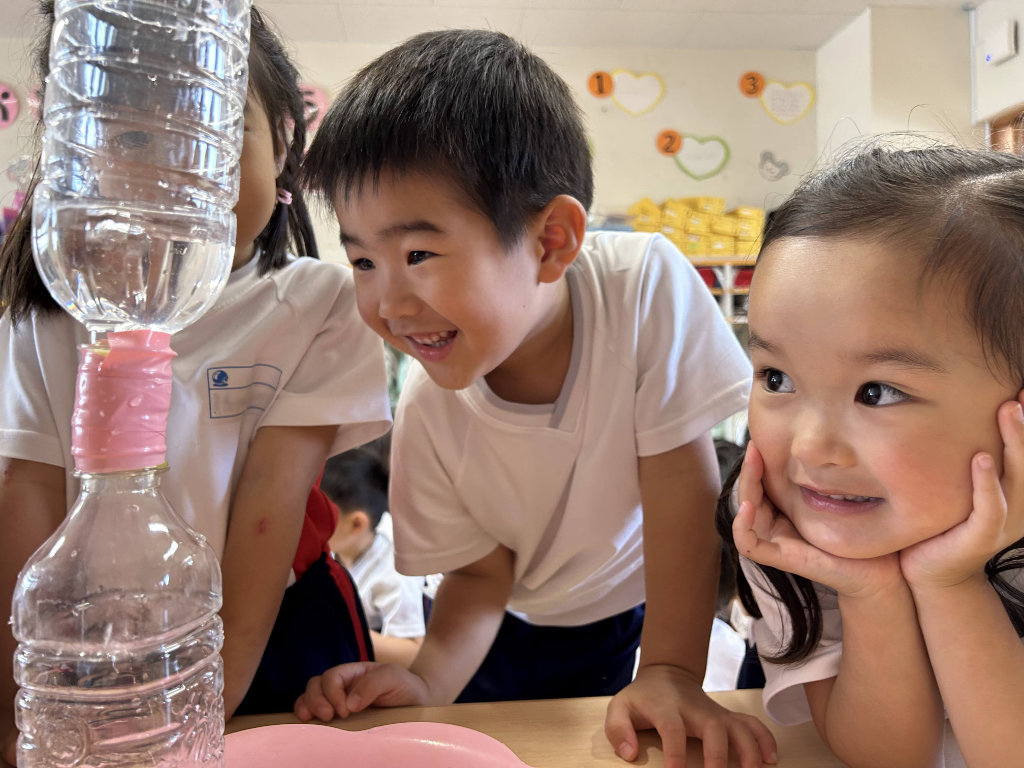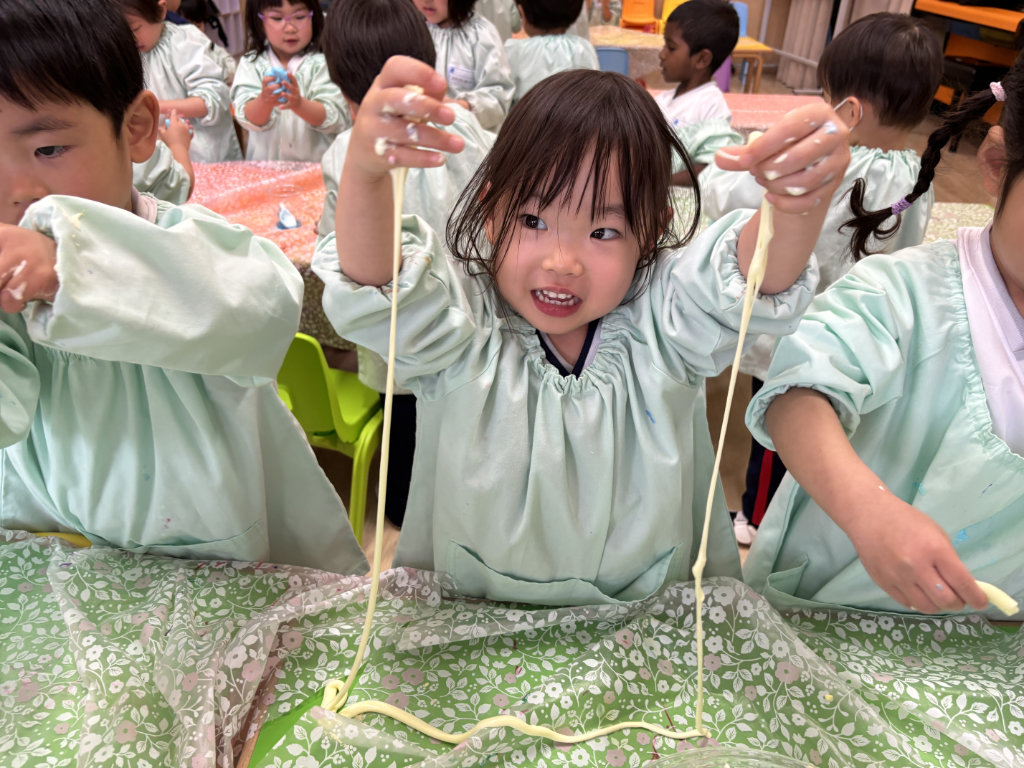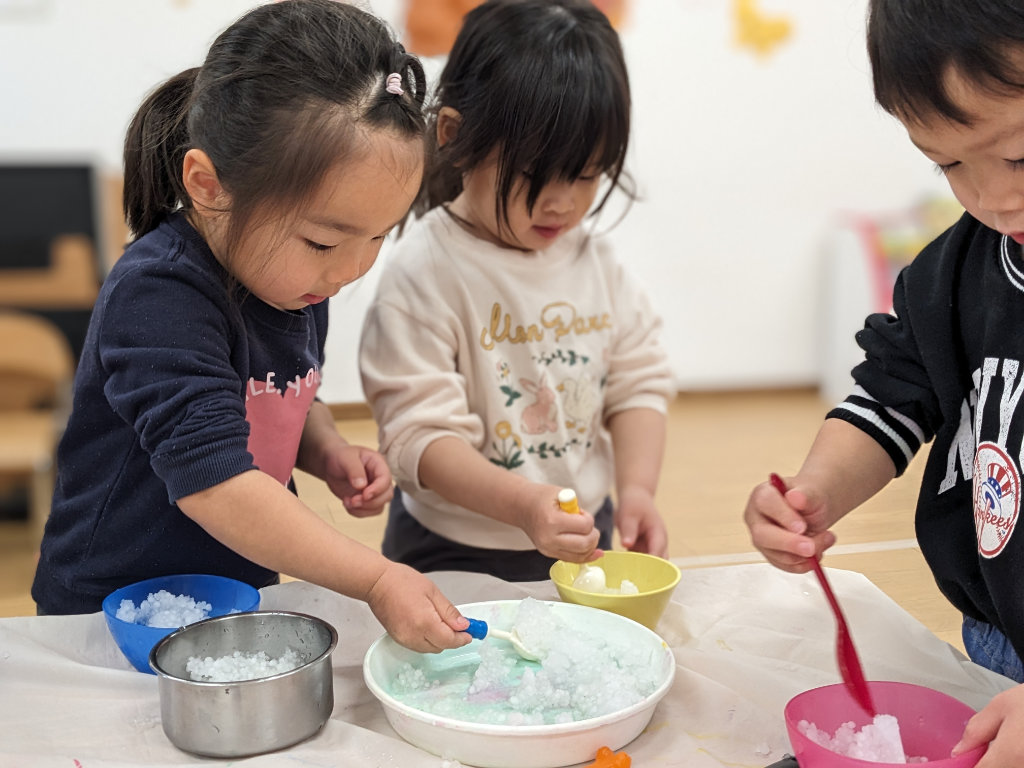2025/06/25Latest News

The introduction of STEAM education in our programs was inspired by the 2018 revision of Japan’s national curriculum guidelines. These changes emphasized the need to nurture individuals who can create new value in the Society 5.0 era. As we care for and educate children aged 0 to 5, we believe it is our role to lay the foundation for these future-ready individuals. We came to understand that the traditional method of simply teaching answers does not foster creativity. Instead, we adopted an approach we call inquiry-based care, which nurtures intellectual curiosity through exciting experiences and encourages children to think and understand for themselves.
Since introducing STEAM education, our educators have shifted to asking open-ended questions and waiting patiently for children’s responses, taking on the role of facilitators. In turn, we’ve seen notable changes in the children: they have greater focus, can engage in activities for longer periods, and are more confident in expressing their ideas and exchanging opinions with friends. Even without examples to follow, they freely come up with their own ideas and express themselves in creative, individual ways. In this calm and supportive environment, they’ve become more willing to take on challenges without fear of failure.
STEAM is not only effective for children, but also for adults and older adults. The process of thinking, experimenting, and communicating through hands-on, sensory activities stimulates curiosity and creativity at any age. For seniors, activities that involve trial and error through hand movement also help to activate the brain.
Intergenerational STEAM programs, where older adults interact with children, bring added benefits. Seniors may naturally begin to speak in their desire to teach children, or move their hands and feet to help out. This interaction fosters a sense of purpose and encourages social participation. The beauty of STEAM lies in its ability to bring people of different generations together to learn from one another.

Through our practice of STEAM-based care, we began to witness clear positive changes in both teachers and children. This led to a strong desire to share our approach more widely. We wanted others to know that STEAM education doesn’t require special tools and can be implemented using familiar materials in everyday settings. It expands children’s potential. To capture these experiences and insights, we compiled them into a single book, published on May 29, 2025.
The STEAM Early Childhood Education Research Association was established to promote broader awareness and adoption of STEAM practices—not only in nursery schools, kindergartens, and early childhood education centers, but also in educational institutions and households. Our goal is to build a strong community around this approach.
By fostering creative and curious learners, we hope to empower children to shape their own futures with joy and confidence. Through case study presentations, open classroom sessions, and educational material search systems, we continue to advance the understanding and spread of STEAM education.

The Azalee Group has a YouTube channel, "Azalee Channel"!
Here, you can explore daily activities and initiatives across our facilities, including senior care homes, inclusive living support for individuals with disabilities, kindergartens, nurseries, and certified childcare centers. We upload new videos several times a month, so be sure to check them out!
If you enjoy our content, we’d love for you to subscribe to our channel!